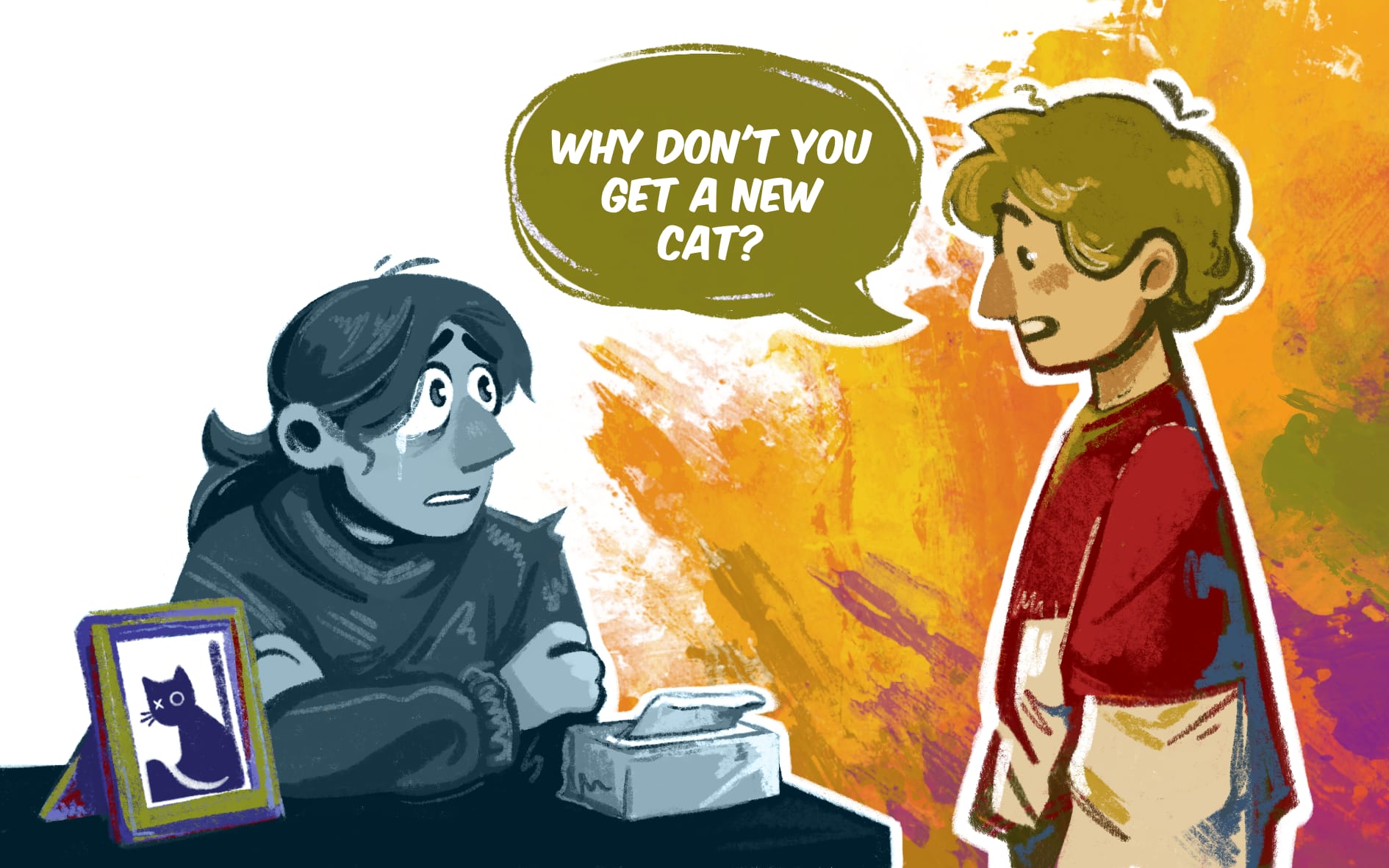
The Game of Student Life: Success is for Winners, Burnouts for Losers
Second-year Psychology students of the Psychology Bachelor participating in the University Honours College follow a workshop on Blogging Science, in which they learn to communicate science to the general public, by means of informing, giving an opinion, and relating issues in science to issues in society. This year a selection of these written blog posts is published on Mindwise. Today’s post is by Tessa Kiffers.
Imagine you are playing Tetris. It starts out as fun. You enjoy the challenge to let everything fit and you notice you are actually good at it: A feeling of pride and control comes up. But as you advance, speed rises and although you’re trying the best you can, it is too overwhelming; mistakes pile up as does your level of stress. Then, the hopeless moment comes when you know you are going to lose. You can change what you want but it doesn’t make sense anymore. Your game is over.
Recognizable, right? Or does it sound too familiar? Even a bit confronting? Maybe, that is because I just described your life as a student.
Game Over
If you recognise yourself in the previous description, you’re not the only one. Currently, research by interpolis suggests one in five young people show burnout related symptoms and this percentage is even higher among academic students, among whom 1 in 3 are at risk of developing a burnout (GGZ Nederland). To put this into perspective, the chance of a burnout is 2.5 times higher among students than among employees. Although these findings are worrisome, they seem a logical consequence of the burden that is placed upon students nowadays. Many students are confronted with work overload, fatigue and lack of control, and experience high levels of stress. As a consequence, they are experiencing a decreased quality of life. Students often perceive an imbalance between the costs and rewards of studying3. That is, the amount of time and effort they put into their study and study-related obligations exceeds the rewards they obtain in return, such as grades, esteem and future prospects. You must excel in grades, participate in honours programs, be a committee or board member, and gain experience as a researcher or trainee, in order to keep up with your peers. This attempt of balancing all deadlines, coursework, extracurricular activities, and other responsibilities is often detrimental to students’ levels of sleep, their social life and their health3,4,5.
“A burnout leads individuals to feel emotionally exhausted, depersonalized, and inadequate.”
A burnout leads individuals feel emotional exhausted, depersonalized, and inadequate4. The emotional exhaustion contains the stress element of a burnout. Depersonalization refers to the interpersonal aspect, which often includes negative responses to other people. Finally, the inadequacy component represents decreased feelings of competence and productivity. Many students with a burnout loose the ability to be satisfied with accomplished tasks5. A burnout often develops over the course of education and is predicted by the total amount of time spent studying. It increases the chance of absenteeism, school dropout and academic underperformance6. However, it can also lead to severe long-term consequences. Those with a burnout are, for example, at higher risk of cardiovascular diseases and mental disorders such as depression and suicidal ideation7. Thereby making you literally lose the game of life.
It’s just a Game
However, there are beliefs that the increasing prevalence of burnout among students is not caused by the work load and pressure of college life, but by the current generation of youth itself. There are research findings indicating that current students are more demanding of others and of themselves. Generations of young people are becoming more and more perfectionistic8. They incline to be more narcissistic, materialistic and competitive and have unrealistically high expectations of themselves and others. The role of social media is important in this generation shift. The constant possibility to compare yourself with others and the suggested perfection that is reflected on social media lead to abnormal expectations and more competition among students. This all would mean that it is the youth itself that creates its own culture in which burnouts are omnipresent. They made their own game so competitive, they themselves can’t handle it anymore.
“It is the youth itself that creates its own culture in which burnouts are omnipresent.”
Changing the Game Rules
Altogether, the explanation of the increasing prevalence of burnout among students is complex. While the role of the players and the game remain unclear, I suggest looking at the game rules. Both the pressure of college life and the perfectionism of this generation are actually products of the culture in which we live. We focus on excellence, achievements, productivity and manufacturability. This strive for success is reflected in every aspect of society, from child-rearing to the educational system. Therefore, it is important to shift the focus from earning to learning, from product to process and from achievement to potency.
Because in the end, playing is more important than winning.
Note. Picture by Louetta Knaus.
References
- http://www.gfk.com/nl/insights/news/1-op-5-millennials-ondervindt-klachten-die-tot-een-burn-out-kunnen-leiden/
- https://www.ggznieuws.nl/home/een-op-de-drie-studenten-heeft-verhoogd-risico-op-burn-out/
- Williams, C. J., Dziurawiec, S., & Heritage, B. (2018). More pain than gain: Effort–reward imbalance, burnout, and withdrawal intentions within a university student population. Journal Of Educational Psychology, 110(3), 378-394. doi:10.1037/edu0000212
- Santen, S.A, Holt, D.B., Kemp, .J.D. & Hemphill, R.R. (2010). Burnout in medical students: Examining the prevalence and associated factors. Southern Medical Journal,103(8), 758-63. doi:10.1097/SMJ.0b013e3181e6d6d4
- May, R. W., Bauer, K. N., & Fincham, F. D. (2015). School burnout: Diminished academic and cognitive performance. Learning And Individual Differences, 42126-131. doi:10.1016/j.lindif.2015.07.015
- Rahmati, Z. (2015). The study of academic burnout in students with high and low level of self-efficacy. Procedia – Social and Behavioral Sciences,171, 49-55. doi:10.1016/j.sbspro.2015.01.087
- Taylor, D. J., Bramoweth, A. D., Grieser, E. A., Tatum, J. I., & Roane, B. M. (2013). Epidemiology of insomnia in college students: Relationship with mental health, quality of life, and substance use difficulties. Behavior Therapy, 44(3), 339-348. doi:10.1016/j.beth.2012.12.001
- Curran, T., & Hill, A. (2017). Perfectionism is increasing over time: A meta-Analysis of birth cohort differences from 1989 to 2016. Psychological Bulletin. doi:10.1037/bul0000138




“A burnout leads individuals feel emotional exhausted, depersonalized, and inadequate.” Is this really the quote? It should say …leads individuals to feel emotionally exhausted… Or ….to feel emotional, exhausted, depersonalized…
thank you! corrected
– Ed.